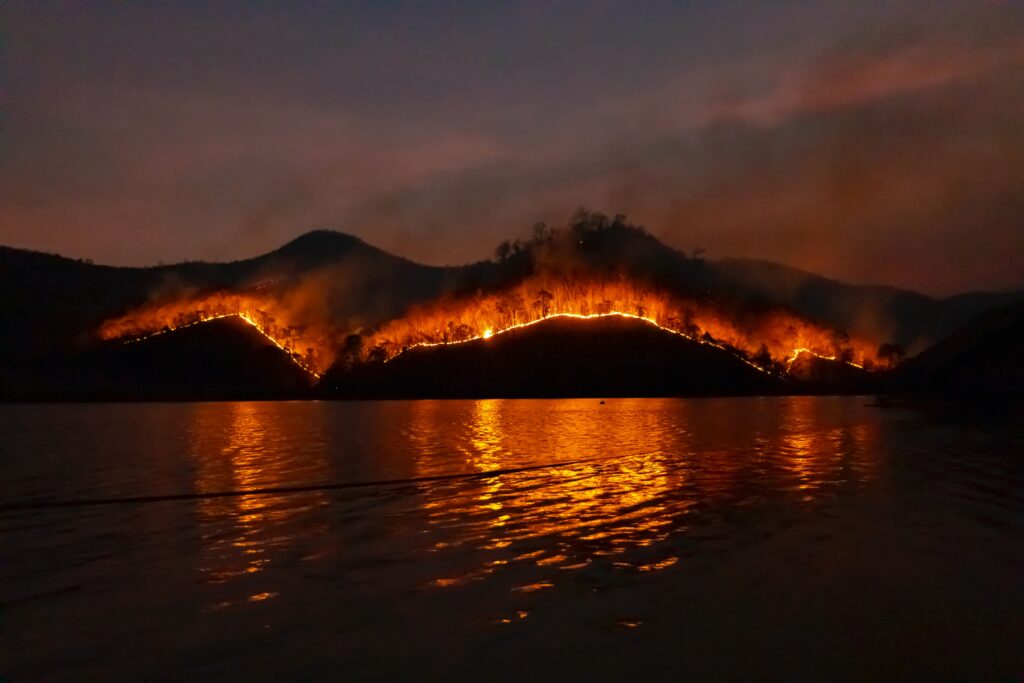
The Working Group I contribution to the Sixth Assessment Report is the most up-to-date physical understanding of the climate system and climate change, bringing together the latest advances in climate science, and combining multiple lines of evidence from paleoclimate, observations, process understanding, and global and regional climate simulations.
Climate change has already caused “substantial damages and increasingly irreversible losses, in terrestrial, freshwater and coastal and open ocean marine ecosystems”.
The 6th Assessment report by IPCC
Among the findings, the report concludes that:
- Climate change has already caused “substantial damages and increasingly irreversible losses, in terrestrial, freshwater and coastal and open ocean marine ecosystems”.
- It is likely that the proportion of all terrestrial and freshwater species “at very high risk of extinction will reach 9% (maximum 14%) at 1.5C”. This rises to 10% (18%) at 2C and 12% (29%) at 3C.
- Approximately 3.3 to 3.6 billion people “live in contexts that are highly vulnerable to climate change”.
- Where climate change impacts intersect with areas of high vulnerability, it is “contributing to humanitarian crises” and “increasingly driving displacement in all regions, with small island states disproportionately affected”.
- Increasing weather and climate extreme events “have exposed millions of people to acute food insecurity and reduced water security”, with the most significant impacts seen in parts of Africa, Asia, Central and South America, small islands and the Arctic.
- Approximately 50-75% of the global population could be exposed to periods of “life-threatening climatic conditions” due to extreme heat and humidity by 2100.
- Climate change “will increasingly put pressure on food production and access, especially in vulnerable regions, undermining food security and nutrition”.
- Climate change and extreme weather events “will significantly increase ill health and premature deaths from the near- to long-term”.
The report warns that if global warming passes 1.5C – even if overshooting that global average temperature temporarily before falling back again – “human and natural systems will face additional severe risks”, including some that are “irreversible”.

Use the following links to read more
- By IPCC
- By others
Our blog posts / Critical reviews
- Danmarks forbrugsbaserede klimaaftryk er faldet med 25 pctHvad vi har læst Klima-, Energi- ofg Forsyningsminesteriet følger op de danskernes klimaaftryk. For nyligt har ...
- COP26 is a fragile win, is it really?What we have read On the UKCOP26 website, we can read the concluding statement from the ...
- A record year: Wind and solar supplied more than half of Denmark’s electricity in 2020What we have read As the focus on Green House Gas emissions increases, articles claiming significant ...
Must read articles / must see videos
- IPCC 6 Shows A “Criminal Abdication Of Leadership” The latest IPCC 6 report is 3500 pages long. You might wanna start with a 5 mins ...
- Climate change 2022: The physical science basisIPCC Working Group 1 report is a code red for humanity. The alarm bells are ...
- Fulfilling the Promise: How Climate Action 100+ Investor-Signatories Can Mitigate Systemic Climate RiskWhat we have read Majority Action is a non-profit, non-partisan organization that empowers shareholders to hold ...
- Breaking boundaries on NetflixThe 75-minute production from 2021 follows the scientific journey of Johan Rockström and his team’s ...
- Regenerative leadershipAuthor and entrepreneur Laura Storm is part of a new generation of sustainability professionals advocating for a ...
- Let the environment guide our developmentThis TED talk is a must see. Even though it is a bit dated, the ...
- A healthy economy should be designed to thrive, not growBrilliant talk on holistic sustainability. What would a sustainable, universally beneficial economy look like? “Like a ...
Knowledge base
- Så meget udleder der forskellige fødevarer
- How is global climate change governed?Ever wanted to know how the climate is governed globally? This article explains it.
- Carbon budgetsIn order to stay below the 1,5 degrees Celsius, we need to stay within a ...
- Setting meaningful targets: SBTiAt its core, the SBTi framework is a rigorous set of criteria about what emissions ...
- Risks from temperature rises according to IPCC
- Climate change consequences according to ECClimate change affects all regions around the world. Polar ice shields are melting and the ...
- Who generates Greenhouse gas emissionsGreenhouse gases are gases in Earth’s atmosphere that trap heat. They let sunlight pass through ...
- Regenerative leadershipAuthor and entrepreneur Laura Storm is part of a new generation of sustainability professionals advocating for a ...
- Let the environment guide our developmentThis TED talk is a must see. Even though it is a bit dated, the ...
- CO2 emissions per personSo, which country uses most CO2, USA or China. The correct answer is: BOTH. How ...